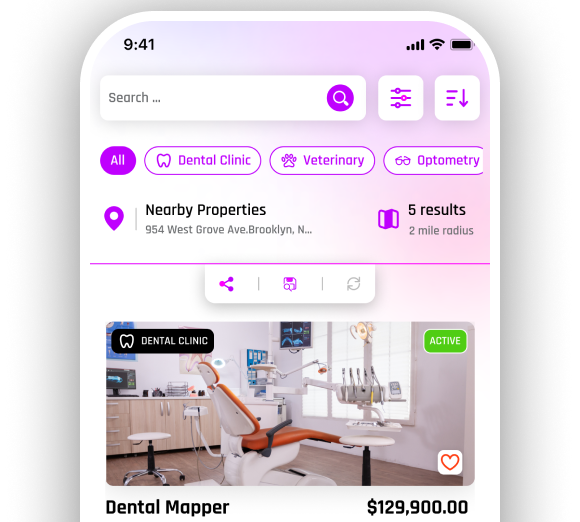Start-ups vs Acquisitions in Healthcare

With the rise of digital healthcare, the healthcare industry's landscape is undergoing a significant transformation. Healthcare entrepreneurs now have more opportunities than ever to innovate, grow, and thrive. However, they face a critical decision on their path to success—should they focus on building a start-up or consider acquisition strategies? In this blog post, we will explore the pros and cons of both approaches, helping healthcare entrepreneurs make informed decisions that align with their business goals.
The Rise of Healthcare Start-ups
What are Healthcare Start-ups?
Early-stage businesses devoted to creating cutting-edge goods, services, or technologies to solve particular problems in the healthcare industry are known as healthcare start-ups. Innovative technologies like wearables, telemedicine, and artificial intelligence (AI) are frequently used by these start-ups to save expenses, expedite processes, and enhance patient care.
Benefits of Healthcare Start-ups
Innovation and Agility:
Start-ups are known for innovating quickly and adapting to changing market conditions.
They can experiment with new ideas and technologies without the constraints of existing systems.
Focus on Niche Markets:
Start-ups can target specific niche markets within healthcare, addressing unmet needs and creating specialized solutions.
This allows them to discover a unique position and build a loyal customer base.
Attracting Investment:
Investors are often drawn to healthcare start-ups due to their potential for high returns and disruptive innovation.
Start-ups can secure venture capital funding to fuel their growth and development.
Challenges of Healthcare Start-ups
Regulatory Compliance:
Navigating the complex regulatory landscape of the healthcare industry can be daunting for start-ups.
Complying with laws such as the Food and Drug Administration's approval requirements and the Health Insurance Portability and Accountability Act can be expensive and time-consuming.
Resource Limitations:
Start-ups often operate with limited resources, including funding, manpower, and infrastructure.
Scaling operations and achieving sustainable growth can only be challenging with adequate support.
Market Competition:
The healthcare industry is highly competitive, with numerous established players and emerging start-ups vying for market share.
Start-ups must differentiate themselves and demonstrate the value of their offerings to stand out in a crowded market.
The Appeal of Healthcare Acquisitions
What are Healthcare Acquisitions?
Healthcare acquisitions involve purchasing existing healthcare companies or assets from another entity. Acquisitions can take various forms, including medical mergers, takeovers, and strategic partnerships. This strategy allows larger healthcare organizations to expand their capabilities, enter new markets, and gain access to innovative technologies and talent.
Benefits of Healthcare Acquisitions
Access to Established Infrastructure:
Purchasing an already-existing healthcare business gives you instant access to its established infrastructure, which includes staff, technology, and facilities.
Market Expansion:
Acquisitions enable healthcare organizations to enter new geographic markets or expand their presence in existing markets.
Talent Acquisition:
Acquiring companies with specialized expertise or innovative technologies allows organizations to tap into new talent pools.
Challenges of Healthcare Acquisitions
Integration Complexities:
Including acquired businesses into the current organizational structure can take time and effort.
Differences in corporate culture, systems, and processes can create friction and hinder successful integration.
Financial Risks:
Large sums of money are often invested in acquisitions, and there is always a chance that the projected advantages will stay the same.
Regulatory Scrutiny:
Large healthcare acquisitions may attract regulatory scrutiny to ensure compliance with antitrust laws and maintain fair competition.
Comparing Start-ups and Acquisitions
Strategic Considerations
When deciding between pursuing a start-up or an acquisition strategy, healthcare entrepreneurs should consider the following factors:
Business Goals:
Entrepreneurs with a strong sense of inventiveness and a drive to create something from the ground up should focus on startups.
Acquisitions are suitable for organizations looking to expand their capabilities and market presence rapidly.
Risk Tolerance:
Startups are associated with higher degrees of risk due to resource constraints, regulatory compliance issues, and concerns over market adoption.
Acquisitions offer a more established path but come with financial and integration risks.
Time Horizon:
Start-ups require a longer time horizon to achieve significant growth and profitability.
Acquisitions can provide immediate benefits and accelerated growth, but integration success is crucial.
Sign Up with Practice Finder today!
Ready to explore the possibilities of healthcare start-ups and medical mergers? Download the Practice Finder application and enjoy the benefits of online practice search and other facilities.

